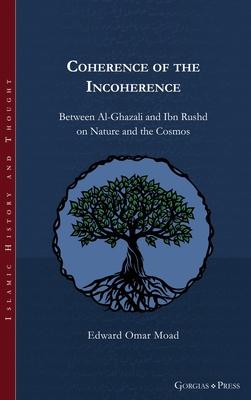The debate recorded in al-Ghazālī's Incoherence of the Philosophers, and Ibn Rushd's response in Incoherence of the Incoherence, is one of the most philosophically interesting events in the history of classical Islamic thought. Here, the cutting edge of Ghazālī's searching critique meets the depth of Ibn Rushd's philosophical insight in a clash over the innovative synthesis of Aristotelian and Neo-Platonic thought represented chiefly by Ibn Sīnā. This critical commentary closely analyses and evaluates the arguments deployed by all three parties in the debate, wherein are raised questions about the origin of the universe and the reality of time, possibility, causality, and nature. Where opportunities arise, it actively engages in the discussion by suggesting alternative arguments and philosophical directions. It goes beyond the clich construal of the Incoherence debate as simply a conflict between faith and reason, exposing it as a genuinely philosophical enterprise and a potential source of fresh perspectives on contemporary discussions in metaphysics and analytic theology. Anyone interested in the al-Ghazali/Ibn Rushd confrontation will find this book indispensable. Balanced, analytical and well-argued throughout, Moad has made an important contribution to the area. (Oliver Leaman, Professor of Philosophy, University of Kentucky)

Coherence of the Incoherence: Between Al-Ghazali and Ibn Rushd on Nature and the Cosmos
The debate recorded in al-Ghazālī's Incoherence of the Philosophers, and Ibn Rushd's response in Incoherence of the Incoherence, is one of the most philosophically interesting events in the history of classical Islamic thought. Here, the cutting edge of Ghazālī's searching critique meets the depth of Ibn Rushd's philosophical insight in a clash over the innovative synthesis of Aristotelian and Neo-Platonic thought represented chiefly by Ibn Sīnā. This critical commentary closely analyses and evaluates the arguments deployed by all three parties in the debate, wherein are raised questions about the origin of the universe and the reality of time, possibility, causality, and nature. Where opportunities arise, it actively engages in the discussion by suggesting alternative arguments and philosophical directions. It goes beyond the clich construal of the Incoherence debate as simply a conflict between faith and reason, exposing it as a genuinely philosophical enterprise and a potential source of fresh perspectives on contemporary discussions in metaphysics and analytic theology. Anyone interested in the al-Ghazali/Ibn Rushd confrontation will find this book indispensable. Balanced, analytical and well-argued throughout, Moad has made an important contribution to the area. (Oliver Leaman, Professor of Philosophy, University of Kentucky)